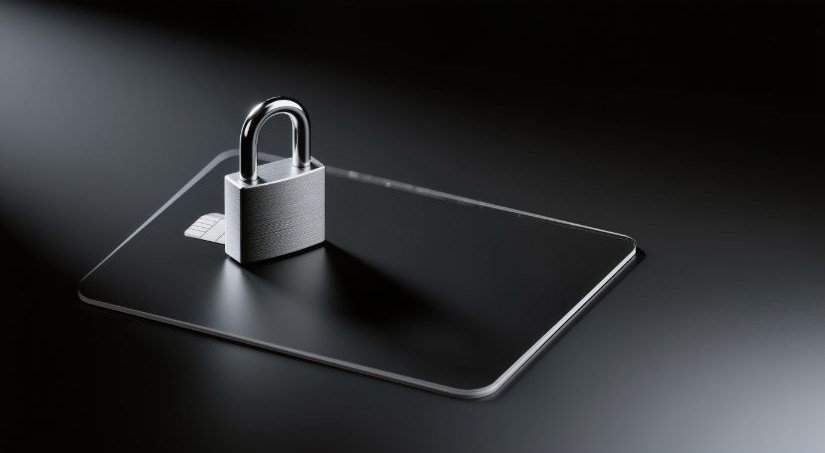Home / Playing Music at the Workplace: A Quick Guide for Organisations
Playing Music at the Workplace: A Quick Guide for Organisations
- October 9, 2025
- Santosh Vikram Singh
Did you know that playing music at the workplace amounts to public performance and requires a licence? Well, don’t be surprised, because you’re not the only one unaware of this fact. Many companies find themselves in the same confusion.
CDs, DVDs, or subscriptions to streaming platforms like Spotify or Apple Music only cover personal listening. They do not allow public playback. Under copyright law, you must obtain permission from the copyright holders or their representatives to play music publicly.
That said, many organisations, especially those organising employee engagement or recreational activities, often use music without the proper licences. The irony is that these licences are usually fairly simple and reasonably affordable to obtain. However, if you skip them and get caught, it can end up costing a fortune, not to mention potential legal issues.
In this article, we decode the do’s and don’ts for organisations that utilise music at the workplace.
Licensing Bodies in India
In India, music licensing is fragmented across multiple authorities, which often causes confusion and compliance gaps. Depending on the rights involved, separate licences may be necessary.
- Sound Recording: Obtain a licence from Phonographic Performance Limited (PPL India), Novex Communications, or Recorded Music Performance Ltd. (RMPL) to play songs owned by these entities.
- Rights in Underlying Musical and Literary Works: Obtain a licence from the Indian Performing Right Society (IPRS) if the rights holders (authors and composers) are members of IPRS.
- Rights of Singers (As Part of Performers): Obtain a clearance certificate from the Indian Singers’ and Musicians’ Rights Association (ISAMRA), formerly known as the Indian Singers Rights Association (ISRA), for playing songs sung by singer members.
When obtaining a licence, ensure the licensing authority actually holds the rights to the works you are using and that the licence covers your intended use.
A 2023 agreement between ISAMRA and the Indian Music Industry allows ISAMRA to receive a portion of public performance revenue from sound recordings collected by PPL India, which is then distributed to performers. PPL India’s revised tariffs are partly designed to help its members meet their financial obligations to ISAMRA, preventing any additional fees or legal actions against PPL’s licensees by ISAMRA.
Organisations should note that tariffs for background music depend on the size of the premises (in sq. ft.). Factors such as the number of employees are not explicitly listed on the licensing bodies’ websites. Licences for corporate events, however, fall under a separate category and are different from background music licences.
It is also worth noting that while registration is mandatory for any entity engaged in the business of issuing licences under the Copyright Act, 1957, not all players, such as Novex, are registered societies. This is a space to watch closely as court rulings continue to shape the landscape. Click here to read our blog post on this subject.
Challenges Around Tariff Schemes
Persons aggrieved by copyright societies’ tariff schemes may appeal to the commercial court, which may, before issuing an order on the matter, fix an interim tariff after hearing the parties. Furthermore, if a licence is offered on unreasonable terms, it may constitute a refusal to permit performance in public, in which case a compulsory licence may be granted.
The Need for a Centralised Licensing System
A centralised digital music licensing registry is expected to be launched soon in collaboration with rights societies, following the first meeting of the Joint Working Group on promoting the live events industry, convened in August 2025. This aims to address the overlapping music rights bodies and non-transparent tariff structures.
Such an initiative for the overall music licensing regime in the country, and not just for live events, can undoubtedly simplify matters for businesses.
On the global stage, similar systems are already in place. For example, in the UK, music managed by PPL (representing performers and record companies) and PRS (representing songwriters, composers, and publishers) can be accessed through a single licence called ‘TheMusicLicence’. This licence permits the legal playback of music for employees in offices or workplaces via radio, TV, other digital devices, and live performances. Previously, UK businesses and organisations needed to acquire separate music licences from PPL and PRS.
In New Zealand, the OneMusic joint licensing initiative, a collaboration between APRA AMCOS (representing songwriters, composers, and music publishers) and Recorded Music NZ (representing recording artists and record labels), simplifies the licensing process for businesses.
Penalties for Infringement
Playing music at the workplace without a valid licence constitutes copyright infringement. This may lead to both civil and criminal liability.
- Civil remedies include injunctions, damages, and accounts of profits.
- Criminal penalties can include imprisonment for between six months and three years, as well as fines ranging from INR 50,000.00 to INR 2,00,000.00.
In the case of a company, liability extends not only to the organisation but also to individuals in charge of and responsible for the conduct of business on behalf of the company.
Things Organisations Should Keep in Mind
- Include music usage in your HR or internal compliance policies, ensuring no music is played without proper authorisation.
- Understand the rights involved and the applicable licence category before making payments to avoid paying excessive fees.
- Be truthful in your declarations, as inaccurate information about music usage can result in additional fees.
- If music has already been used without a licence, proactively contact the relevant society to regularise your use. Most are business-friendly and open to resolving matters in a mutually amicable manner.
- If you receive a demand notice, consult your legal team before responding. Most cases don’t go to court, as owners usually seek licence fees without incurring additional costs; however, matters can escalate if negotiations fail or the notice is ignored.
- If you’re regularising past infringements, expect to pay an additional amount towards damages.
Final Thoughts
While this post focuses on licences for playing music at the workplace, organisations should also be aware of other considerations. For instance, the type of music played could potentially lead to harassment claims, and using music in marketing or social media content may require separate permissions.
The good news is that you don’t need a licence for royalty-free music or works in the public domain, which can be a simple and safe alternative for many organisations.
By keeping informed, knowing your rights, and consulting copyright or licensing experts, employers can stay compliant and steer clear of unnecessary risks.
Organisations should note that tariffs for background music depend on the size of the premises (in sq. ft.). Factors such as the number of employees are not explicitly listed on the licensing bodies’ websites. Licences for corporate events, however, fall under a separate category and are different from background music licences.
Related Posts

Inside the New ‘Accredited Investors Only’ AIF Framework

Promise vs. Practice in MSE Procurement

SWAGAT-FI: India Paves Easy Path for Low-Risk Foreign Investors

